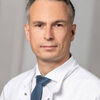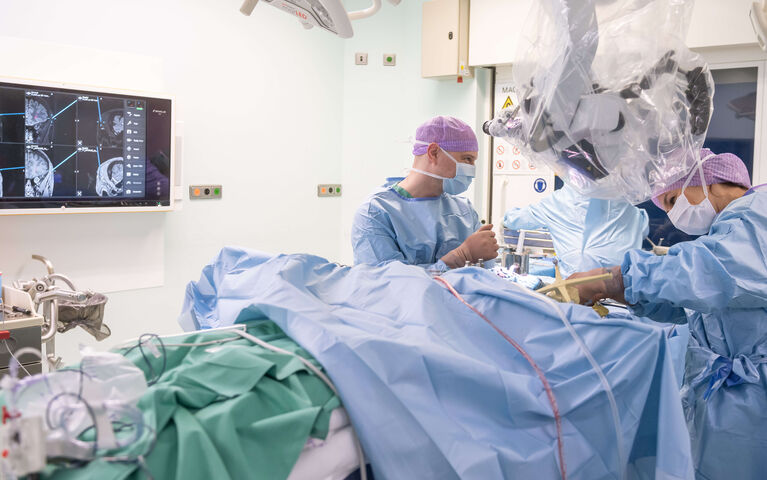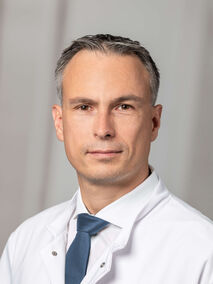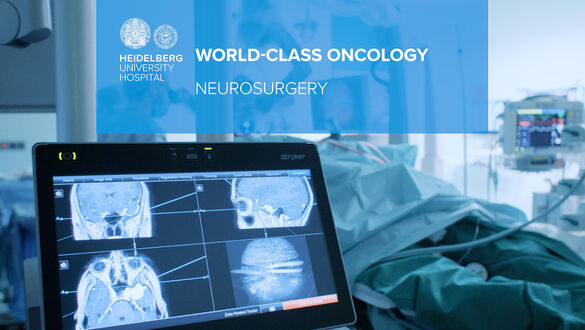We treat the following diseases of children and adults
- Brain and spinal cord tumors in adults and children
- Vascular malformations (aneurysms, angiomas, cavernous hemangiomas) of the spinal cord and brain
- Spinal malformations (syringomyelia, spina bifida aperta, spina bifida occulta, dysraphia, dermal sinus, tethered cord)
- Diseases and injuries of the spine (herniated disc, spinal stenosis, spondylolisthesis, spinal trauma)
- Movement disorders (dystonia, Parkinson's disease, essential tremor)
- Pediatric diseases of the brain and spinal cord
Therapeutic options
- Brain tumors and Spinal cord tumors
- Further information is available here.
- Further information is available here.
- Vascular malformations (aneurysms, arterio-venous malformations (AVM), cavernous hemangiomas)
- Aneurysms are treated according to position, either clipped at the source vessel with special clips (clipping)
- Microsurgical removal of angiomas / cavernous hemangiomas
- The selection of therapy is made individually depending on the medical conditions.
- Spinal malformations (syringomyelia, spina bifida aperta, spina bifida occulta, dysraphia, dermal sinus, tethered cord)
- Using special computer-assisted surgical instruments and modern surgical microscopes, our surgeons can operate precisely to a fraction of a millimeter.
- We make operative goals according to the individual malformation and symptoms, e.g. closure of defects of the protective spinal cord cover, release of spinal adhesions (e.g. in preparation for scoliosis surgery) or to avoid hydrocephalus ("water on the brain") by restoring cerebrospinal fluid circulation.
- Baclofen therapy (pain therapy for spasticity)
- Diseases and injuries of the spine (herniated disc, spinal stenosis, spondylolisthesis, spinal trauma)
- Minimally-invasive surgical procedures (in 90% of herniated discs)
- Operations with neuro-navigation and CT-guided monitoring of operative course
- If necessary, implantation of a rod and screws stabilization system
- A combination of various surgical techniques are customized to the patient so that even very complex clinical pictures can be treated successfully.
- Movement disorders (dystonia, Parkinson's disease, essential tremor)
- Deep brain stimulation (DBS): a fine electrode is implanted to the exact millimeter of the affected brain regions using minimally-invasive technique. In this way movement can be normalized with weak electrical impulses, similar to a heart pacemaker.
- For international patients, the treatment can only be offered if the patient is able to travel to Heidelberg for frequent follow-up checks.
-

With more than 12,000 patients treated annually, our national and international patients benefit from our extensive clinical and scientific expertise.
How to arrange an appointment
Please send us, via our international telemedicine portal:
- The completed contact form with important patient information
- A current medical report (in German, English, or Russian)
- MRI / CT images (these should not be older than 3 months)
- The written report of the radiologist from the native country
Once the information has been received in entirety, the International Office will direct the request to an experienced neurosurgical expert. We will review the file within several days and inform you whether we can offer treatment at Heidelberg University Hospital Department of Neurosurgery




